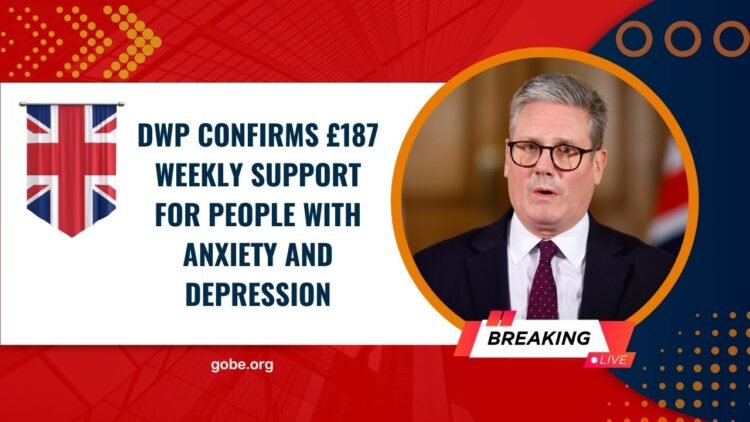The UK’s Department for Work and Pensions (DWP) provides Personal Independence Payment (PIP) to individuals with long-term health conditions, including psychiatric disorders such as anxiety, stress, or depression.
The most someone can receive under PIP is about £187.45 per week.
Key Facts & Figures
| Data Point | Value / Details |
|---|---|
| Total PIP Claimants (England & Wales) | ~3.7 million people are currently receiving PIP. |
| Claimants for Psychiatric Disorders | Approximately 1,444,016 for DWP-defined psychiatric disorders. |
| Payment Range | Between £29.20 and £187.45 per week, depending on rate and component (daily living / mobility). |
| Eligibility Periods | Difficulties with daily living or mobility must have existed for at least 3 months, and are expected to last for at least 9 months. |
| Residency Requirement | You need to have lived in the UK for at least 2 of the last 3 years, and be in the UK when you apply. |
How Much Can You Receive?
PIP is split into two components:
- Daily Living component — helps if you need help with things like preparing meals, washing, dressing, etc.
- Mobility component — helps if you have problems moving around physically or planning journeys.
Each component has a standard rate and an enhanced rate:
- If you get standard rates for both, your weekly total will be lower.
- If you are awarded enhanced rates for both components, you can reach the maximum ~£187.45 per week.
Who Qualifies?
To be eligible:
- You must have a health condition or disability (which includes psychiatric disorders like anxiety, depression, etc.) that makes daily tasks or mobility difficult.
- These difficulties must have persisted for at least 3 months, and be expected to continue for another 9 months or more.
- You must satisfy UK residency requirements (lived in UK 2 of last 3 years, and present in UK at time of applying).
Assessment & Payment Schedule
- An assessment will decide how much you should get. This may include face-to-face, telephone, video, or paper assessments.
- Payments are usually made every four weeks. If you’re terminally ill, you may get payments weekly.
Recent Trends & Changes
- The number of people receiving PIP has increased. For example, psychiatric and mental health conditions are among the top disabling categories for new claims.
- There are discussions about reforming how eligibility is assessed — especially how many points someone must score in assessments for the daily living component. Changes could impact many claimants.
The DWP’s £187.45 weekly payment under PIP offers essential financial support for those living with anxiety, depression, or other psychiatric disorders that significantly impact daily living or mobility.
With millions already benefiting, the scheme plays a vital role in helping people manage daily tasks, travel, and the costs associated with their condition.
If you think you may be eligible, it’s worth applying or seeking advice. Also keep abreast of possible changes to the assessment rules which may affect eligibility in the future.
FAQs
Can I get PIP if I have moderate anxiety or depression, not severe?
Yes — having moderate anxiety or depression doesn’t automatically disqualify you. What matters is how much the condition affects daily living or mobility, and whether you need regular help or have frequent difficulty.
How long does the application to decision process usually take?
While times vary, new PIP applications can take several weeks to months, depending on whether assessments are required, how backed up the DWP is, and the complexity of your case.
What happens if my condition improves — do payments stop?
Yes, PIP awards are reviewed periodically. If your health improves so that you no longer meet the criteria, your payments might be reduced or stopped. However, you will be notified, and you have the right to appeal decisions.
